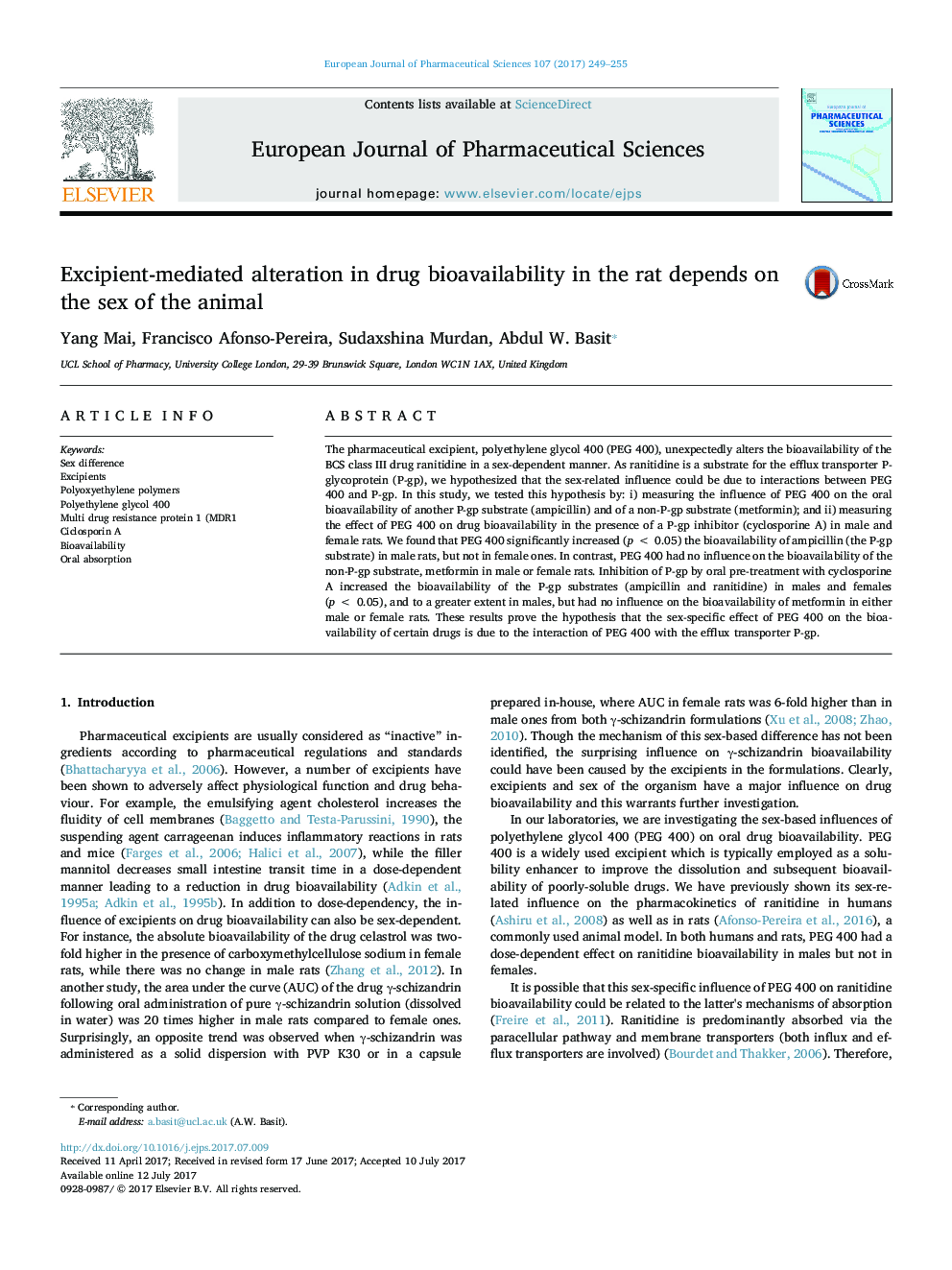| Article ID | Journal | Published Year | Pages | File Type |
|---|---|---|---|---|
| 5547602 | European Journal of Pharmaceutical Sciences | 2017 | 7 Pages |
The pharmaceutical excipient, polyethylene glycol 400 (PEG 400), unexpectedly alters the bioavailability of the BCS class III drug ranitidine in a sex-dependent manner. As ranitidine is a substrate for the efflux transporter P-glycoprotein (P-gp), we hypothesized that the sex-related influence could be due to interactions between PEG 400 and P-gp. In this study, we tested this hypothesis by: i) measuring the influence of PEG 400 on the oral bioavailability of another P-gp substrate (ampicillin) and of a non-P-gp substrate (metformin); and ii) measuring the effect of PEG 400 on drug bioavailability in the presence of a P-gp inhibitor (cyclosporine A) in male and female rats. We found that PEG 400 significantly increased (p < 0.05) the bioavailability of ampicillin (the P-gp substrate) in male rats, but not in female ones. In contrast, PEG 400 had no influence on the bioavailability of the non-P-gp substrate, metformin in male or female rats. Inhibition of P-gp by oral pre-treatment with cyclosporine A increased the bioavailability of the P-gp substrates (ampicillin and ranitidine) in males and females (p < 0.05), and to a greater extent in males, but had no influence on the bioavailability of metformin in either male or female rats. These results prove the hypothesis that the sex-specific effect of PEG 400 on the bioavailability of certain drugs is due to the interaction of PEG 400 with the efflux transporter P-gp.
Graphical abstractDownload high-res image (77KB)Download full-size image
